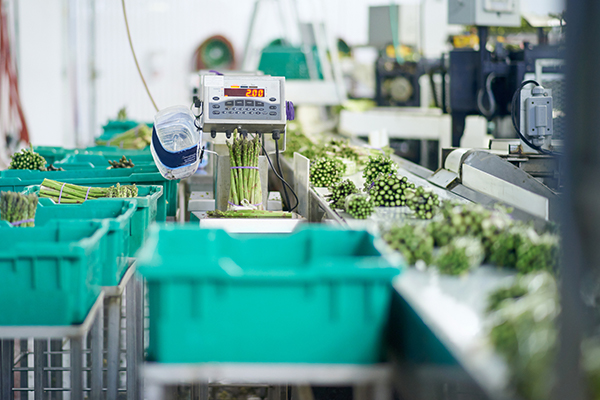Inventory management can be a challenge for food and beverage companies. With effective inventory control, companies can realize significant improvements in loss, traceability and compliance.
Having the right enterprise resource planning (ERP) solution helps companies discover how to take control of food and beverage inventory management .

Why Focus on Inventory Control?
Inventory is at the heart of food and beverage operations. Without sound inventory management, companies are likely to have costlier manufacturing processes, higher waste, lack of visibility to true costs, strained supply chain relationships and shakier regulatory compliance.
Often the issue is a lack of good data. More precisely, it’s about being able to collect, manage and use that data to make better decisions for the success of the business.
The right food ERP solution helps companies resolve some of their greatest inventory management issues, including:
- Excess inventory, leading to spoilage
- Inadequate stock levels, leading to disrupted production and short shipments
- Inaccurate demand forecasting
- Slow turnaround time on customer orders
Solving those issues requires a food ERP that can collect and display data in the moment of critical need, drive better decisions and improve output.

Solving the Big Three Challenges of Poor Inventory Management
Food and beverage companies grapple with inventory issues daily. Here’s a look at three of the most critical issues and how the right ERP platform solves them.
1. Reducing Food Waste
Food waste costs companies millions each year in disposal costs and reordering. The issue is compounded today by customer expectations for rapid introduction of new products, ingredients and recipes.
Reducing food waste means a focus on three core areas:
- Overstocking. Without clear and accurate inventory visibility, food companies can understock (and risk losing revenue) or overstock and suffer from reduced cash flow and increased spoilage.
- Expiration. Companies need to manage multiple expiration and shelf life dates generated by their ERP tool to prevent spoilage. An ERP tool can also optimize and accelerate production scheduling to factor in expiring ingredients.
- Cross-Contamination. Tracking products to avoid contamination is a regulatory and safety issue. With the growing number of food allergies, inventory needs to be stored, handled and packaged properly to track products and manage workflow. Your ERP solution can help map where products are stored and trace usage at every stage.
2. Traceability
Full supply chain traceability is the expectation today among customers and consumers. Providing this information means having ERP capabilities to track sources, locations, handling, processing, delivery dates, quantities and quality.
Traceability is a critical part of recall management planning and execution. With track-and-trace functions in place, your company can respond faster and minimize the impact of a recall, providing the public, customers, stakeholders and regulators accurate information faster.
3. Costing and Profitability
Many food and beverage manufacturers lack true visibility into the cost and accuracy of their inventory. Without knowing the current and projected costs, and managing inventory turns you may be missing ways to optimize your business and gain profitability.
Finding a Solution
FoodBusiness ERP gives your food and beverage company the ability to meet your inventory management challenges. FoodBusiness ERP offers shelf-life management, production planning, stock management, lot management, formula and recipe management, quality control and allergen tracking tools designed specifically for the food and beverage industry.
To learn more about how FoodBusiness ERP can work for your business, reach out to us. We’d love to chat.

